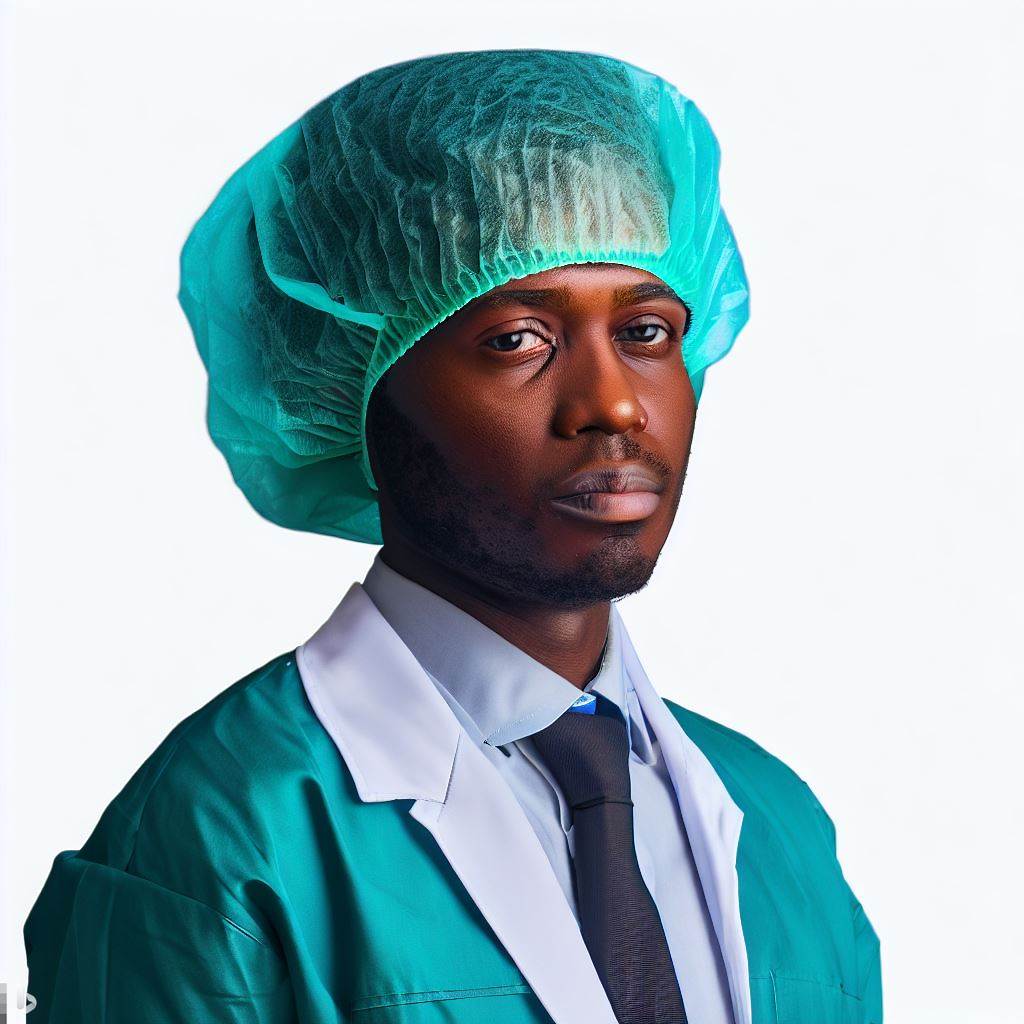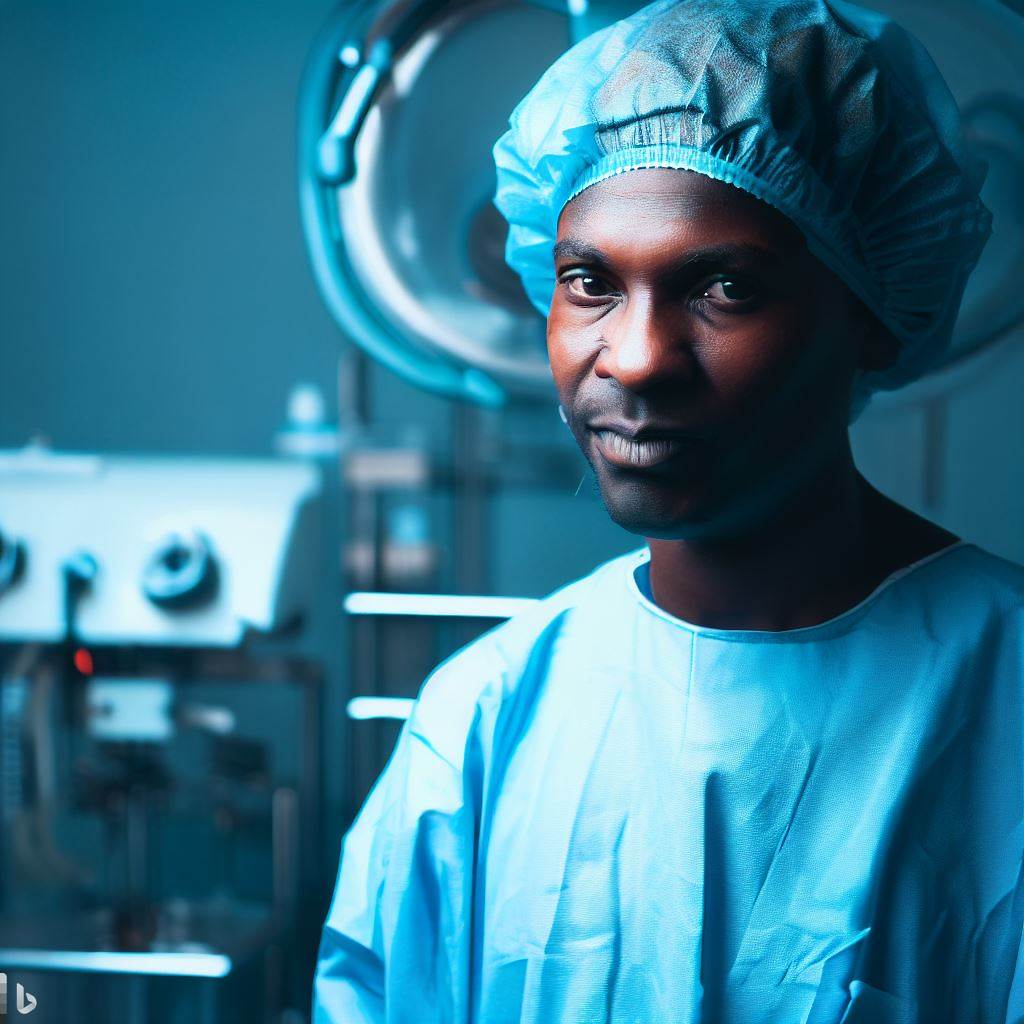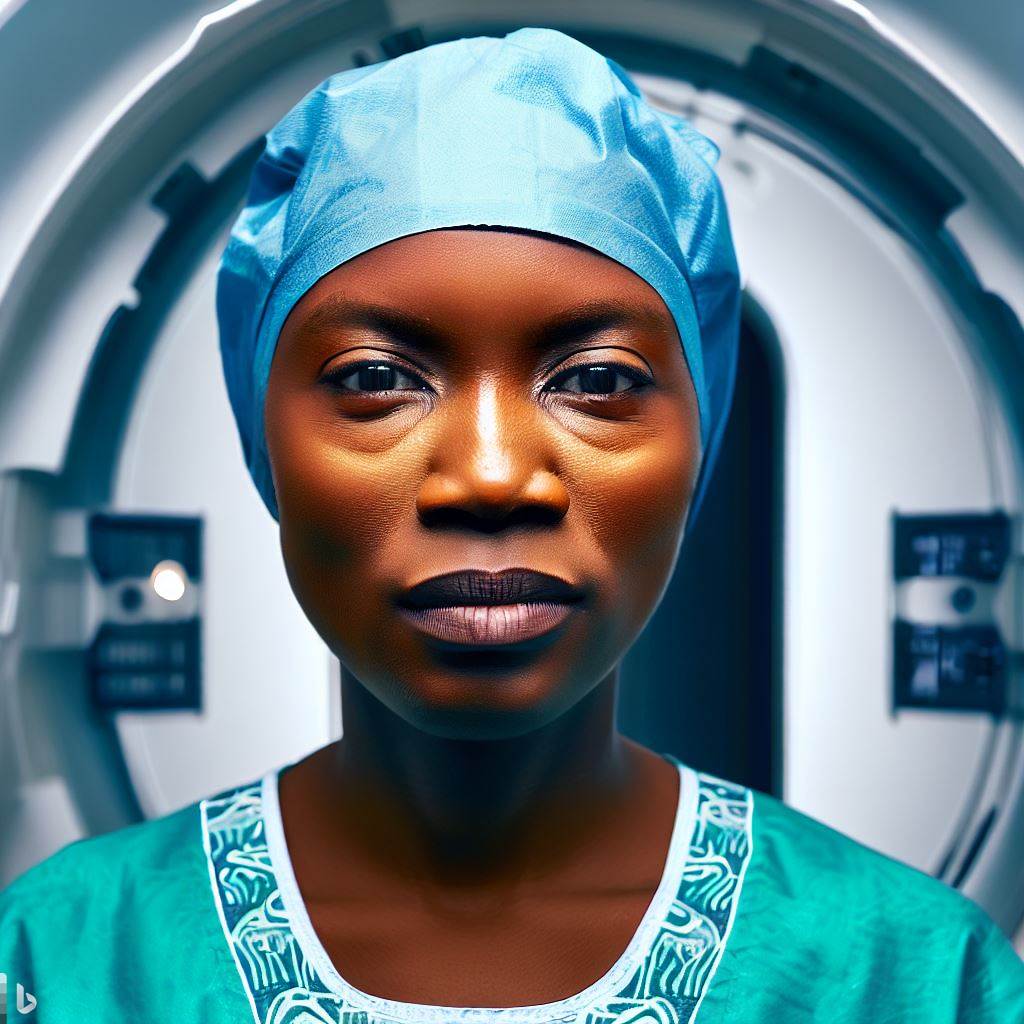Introduction
Nigeria, a country in West Africa, presents an intriguing context for exploring the educational pathway to surgery. Education plays a crucial role in the pursuit of a successful surgical career.
Primary Education in Nigeria
Primary education in Nigeria is the initial formal education that children receive, shaping their future educational choices and careers.
It is compulsory and free for all children aged 6 to 11, focusing on basic skills like reading, writing, mathematics, and basic science.
Science education during these years is crucial for aspiring surgeons, as it fosters critical and analytical thinking skills.
Additionally, primary education nurtures communication, teamwork, discipline, and responsibility – all essential traits for a career in surgery.
Career guidance and counseling in primary schools help students make informed decisions about their future, identifying their interests and talents.
By engaging in extra-curricular activities like science clubs and health-related initiatives, students can further develop their passion for medicine.
Moreover, a solid foundation in primary education is pivotal for success in the common entrance examination, which determines entry into secondary schools.
However, disparities in the quality of primary education among regions and socioeconomic backgrounds can hinder the educational pathway to surgery.
Wealthier or urban students often have better resources and attend private primary schools, providing higher quality education and better preparation for the future.
In contrast, children from rural or disadvantaged communities face challenges in accessing quality primary education.
To address these inequalities, government initiatives like the Universal Basic Education (UBE) program strive to provide equitable educational opportunities for all Nigerian children.
All in all, primary education in Nigeria is fundamental in shaping educational choices and careers, particularly for those aspiring to become surgeons.
It equips students with foundational knowledge and skills, paving the way for further studies in the medical field.
Ensuring access to quality primary education and support is essential to offering equal opportunities to aspiring surgeons.
Read: Evaluating Surgeon Salary Scales across Nigeria
Secondary Education in Nigeria
Secondary education in Nigeria is an important phase in a student’s academic journey. It typically covers the ages of 10 to 17.
Secondary education is split into two tiers: junior secondary school (JSS) and senior secondary school (SSS).
JSS consists of three years, from JSS1 to JSS3, while SSS lasts for three years as well, from SSS1 to SSS3.
Importance of Secondary Education
Secondary education plays a crucial role in preparing students for higher education, including pursuing a career in surgery.
It provides students with a foundational knowledge base, critical thinking skills, and a broader understanding of various subjects.
Secondary education equips students with the necessary skills and knowledge to thrive in their chosen career paths.
Subjects and Programs Beneficial for Aspiring Surgeons
- Biology: A fundamental subject for aspiring surgeons, as it covers the study of the human body and its systems.
- Chemistry: Essential for understanding the chemical processes within the human body and the effects of drugs.
- Physics: Provides insights into the principles behind medical equipment and surgical procedures.
- Mathematics: Builds problem-solving skills required for complex surgeries and calculating medication dosages.
- English Language: Important for effective communication with patients and colleagues.
In addition to these subjects, students interested in pursuing a career in surgery may benefit from participating in science clubs or programs offered by their schools.
Extracurricular activities such as volunteering at hospitals, attending medical camps, or shadowing practicing surgeons can also provide invaluable exposure and experience.
While secondary education in Nigeria provides a solid educational foundation, aspiring surgeons should also consider pursuing higher education at reputable universities or medical schools.
Secondary education in Nigeria plays a vital role in preparing students for higher education and future careers, including surgery.
Subjects such as biology, chemistry, physics, mathematics, and the English language are particularly important for aspiring surgeons.
Engagement in extracurricular activities and seeking out relevant experiences can further enhance a student’s path towards becoming a successful surgeon.
By recognizing the significance of secondary education and taking advantage of available resources, Nigerian students can embark on a rewarding educational pathway towards a career in surgery.
Read: Ethical Considerations for Radiation Therapists in Nigeria
Tertiary Education in Nigeria
In Nigeria, tertiary education encompasses studies pursued after secondary school, usually at a university or college. Options for tertiary education include universities, polytechnics, and colleges of education.
For admission into medical school in Nigeria, students must meet specific requirements:
- Obtain a minimum of five credits in subjects like English, Mathematics, Physics, Chemistry, and Biology in their senior secondary school certificate examination (SSCE).
- Sit for and pass the Unified Tertiary Matriculation Examination (UTME) conducted by the Joint Admissions and Matriculation Board (JAMB).
- Attain the required cutoff mark for the chosen university or medical school in the UTME.
- Participate in a competitive post-UTME screening exercise organized by the university or medical school.
- Obtain a good score in the screening exercise to be considered for admission.
Once admitted into medical school, students can follow different paths:
- Pre-medical studies: Some medical schools offer a pre-medical or foundation program that prepares students for the medical curriculum.
- Direct entry: Students with a relevant science bachelor’s degree can apply directly to medical school.
- Basic medical education: The core medical curriculum spans about six years and leads to the award of a Bachelor of Medicine, Bachelor of Surgery (MBBS) degree.
- Rotations and clinical postings: Later years involve exposure to various clinical specialties through rotations and postings in hospitals.
- Residency training: After the MBBS degree, graduates must complete a one-year internship in a teaching hospital, followed by residency training in their chosen specialty.
Medical education in Nigeria can be competitive and rigorous, requiring dedication and hard work.
Challenges in the educational system may impact the quality of medical training, but efforts are being made to improve the pathway to surgery, including curriculum reforms and infrastructure investment.
Mentorship and guidance play vital roles in helping aspiring surgeons navigate their educational journey and make informed career choices.
Aspiring surgeons in Nigeria must understand the requirements and pathways within medical school, plan their journey, and strive for excellence.
With dedication, perseverance, and support, they can successfully contribute to the development of healthcare in the country.
Read: Success Stories of Nigerian Radiation Therapists
Medical School Curriculum
The curriculum and structure of medical school in Nigerian universities aim to provide students with a comprehensive medical education, lasting approximately six years.
It comprises two main stages: preclinical and clinical.
The preclinical stage emphasizes a strong foundation in basic medical sciences like anatomy, physiology, biochemistry, and pathology.
Students attend lectures, participate in lab sessions, and engage in group discussions.
Upon completing the preclinical stage, students enter the clinical stage, characterized by hands-on experience and direct patient care.
They rotate through various clinical departments, such as surgery, internal medicine, pediatrics, obstetrics, gynecology, and psychiatry.
Surgical education in Nigeria places significant emphasis on practical experience and clinical rotations, allowing students to apply knowledge in real-life scenarios, hone clinical skills, and explore surgical specialties.
Collaborating with experienced surgeons and healthcare professionals during rotations, they observe surgeries, engage in patient care, and make crucial decisions in fast-paced settings, invaluable for future surgical careers.
Medical schools also offer research and community outreach opportunities, broadening understanding of healthcare issues and fostering critical thinking, problem-solving, and teamwork.
The curriculum and structure of medical school in Nigeria remain dynamic to adapt to evolving healthcare needs. Keeping up with technology and research is essential for updated and adaptable medical students.
In short, medical schools in Nigeria provide a comprehensive six-year curriculum with preclinical and clinical stages.
Hands-on experience and rotations are pivotal in surgical education, enabling students to apply knowledge and develop essential skills. Nigerian medical schools lay a robust foundation for aspiring surgeons.
Read: Exploring the Role of a Radiation Therapist in Nigerian Hospitals

Specialization in Surgery
After completing medical school, becoming a specialized surgeon in Nigeria requires going through a specific process.
Let’s explore the educational pathway to specialization in surgery and the different surgical specialties available in the country.
Process of Specialization in Surgery
- Complete a five or six-year medical degree program in a recognized Nigerian university.
- After graduation, undergo a one-year mandatory internship program at a teaching hospital or medical center.
- Pass the Medical and Dental Council of Nigeria (MDCN) examination to obtain a license to practice as a medical doctor.
- Apply for a residency program in surgery at an accredited teaching hospital.
- Attend interviews and undergo selection processes to secure a spot in the residency program.
- Undergo a five to seven-year rigorous residency training program in general surgery or a chosen surgical specialty.
- Participate in rotations and gain hands-on experience in various aspects of surgery.
- Attend regular academic sessions, seminars, and conferences to enhance surgical knowledge and skills.
- Pass the West African College of Surgeons (WACS) or the National Postgraduate Medical College (NPMC) examination to become a certified surgeon.
Different Surgical Specialties in Nigeria
Nigeria offers a wide range of surgical specialties that medical doctors can specialize in after completing their residency training program. Some of these specialties include:
- Cardiothoracic Surgery: Focuses on surgical procedures involving the heart and thoracic organs.
- Neurosurgery: Deals with surgical treatment of disorders affecting the nervous system, including the brain and spinal cord.
- Orthopedic Surgery: Concentrates on musculoskeletal system surgeries, such as joint replacements and fracture management.
- Plastic Surgery: Involves reconstructive and cosmetic surgeries to enhance physical appearance and function.
- Urology: Specializes in the surgical treatment of diseases and conditions involving the urinary tract and male reproductive system.
- Ophthalmology: Focuses on surgical procedures related to the eyes, such as cataract extraction and laser eye surgeries.
- Ear, Nose, and Throat (ENT) Surgery: Deals with surgeries involving the ear, nose, throat, and related structures.
Importance of Additional Training and Certification
Additional training and certification play a vital role in the career progression of surgeons in Nigeria.
It provides surgeons with the opportunity to expand their knowledge, refine their skills, and stay updated with the latest advancements in surgical techniques.
Certification from reputable medical bodies such as the West African College of Surgeons (WACS) or the National Postgraduate Medical College (NPMC) is highly regarded and demonstrates a surgeon’s expertise and competence in their chosen specialty.
This level of specialization and certification also opens doors for career advancement, leadership positions, and opportunities to contribute to the medical field through research, teaching, and mentorship.
In essence, the educational pathway to specialization in surgery in Nigeria requires completing medical school, undertaking a residency program, and obtaining certification from recognized medical bodies.
The availability of different surgical specialties allows doctors to choose their area of interest and expertise.
Continuous learning and additional training are essential for surgical career progression, ensuring that surgeons deliver the highest quality of care to patients.
Read: Challenges and Solutions in Nigeria’s Social Work Practice
Challenges in the Educational Pathway
The educational pathway to becoming a surgeon in Nigeria presents several challenges and barriers that aspiring surgeons must overcome.
These obstacles can hinder progress and discourage many, but with the right strategies and resources, they can be overcome.
In this blog section, we will explore some of these challenges and discuss potential solutions.
Limited Access to Quality Education
- Insufficient funding and resources result in a shortage of quality educational institutions.
- Students from less privileged backgrounds often face significant financial constraints.
- Solution: Seek scholarships, grants, or financial aid opportunities to access quality education.
Inadequate Science Education
- Lack of properly equipped laboratories and qualified science teachers affects the quality of science education.
- Limited exposure to practical science experiments and hands-on training.
- Solution: Supplement school education with extracurricular science activities and seek mentorship from science professionals.
Insufficient Examination Preparation
- Students face intense competition and high-stakes examinations to gain admission to medical schools.
- Underpreparedness due to limited access to quality study materials and exam coaching.
- Solution: Utilize online resources, join study groups, and develop effective study strategies.
Inflexible Curriculum
- Rigid curricula often prioritize theory over practical skills, which are vital for surgical practice.
- Limited exposure to surgical procedures and insufficient hands-on training.
- Solution: Engage in internships, volunteer at hospitals, and seek opportunities for practical experience.
Lack of Mentorship and Guidance
- Aspiring surgeons often lack guidance from experienced professionals.
- Difficulty in finding mentors and advisors who can provide insights and support.
- Solution: Seek mentorship from practicing surgeons, join professional associations, and network with medical professionals.
Competitive Residency Programs
- Securing a residency program in surgery can be highly competitive due to limited positions.
- High academic achievements and strong recommendations are essential for selection.
- Solution: Maintain excellent academic performance, engage in research, and attend surgical conferences.
Limited Research Opportunities
- Inadequate funding and infrastructure hinder research opportunities for aspiring surgeons.
- Limited access to research mentors and facilities.
- Solution: Seek research grants, establish collaborations, and take advantage of research programs abroad.
Basically, while there are numerous challenges on the educational pathway to surgery in Nigeria, there are also various strategies and resources available for aspiring surgeons to overcome them.
It is essential to be proactive, seek support, and take advantage of opportunities that enhance both academic and practical skills.
By doing so, aspiring surgeons can navigate Nigeria’s educational system successfully and fulfill their dreams of becoming skilled surgeons.
Conclusion
This blog post has highlighted the educational pathway to becoming a surgeon in Nigeria. Throughout the post, we have discussed the importance of education and dedication in pursuing a surgical career.
We have emphasized that it is crucial to obtain a strong educational foundation in science and mathematics, followed by enrolling in a medical school.
Additionally, we have highlighted the need for continuous learning and specialization through postgraduate training.
Furthermore, we have emphasized the significance of dedication and perseverance in navigating the challenges that come with pursuing a surgical career in Nigeria.
The long hours, demanding workload, and high-stakes nature of surgery require a deep commitment to the profession.
Lastly, we encourage readers who aspire to become surgeons to explore and pursue their dreams.
Despite the challenges, it is a rewarding profession that allows individuals to save lives, make a difference, and contribute to the healthcare system in Nigeria.
By dedicating oneself to education, acquiring the necessary skills and experience, and maintaining a strong passion for surgery, readers can successfully embark on a fulfilling surgical career in Nigeria.




